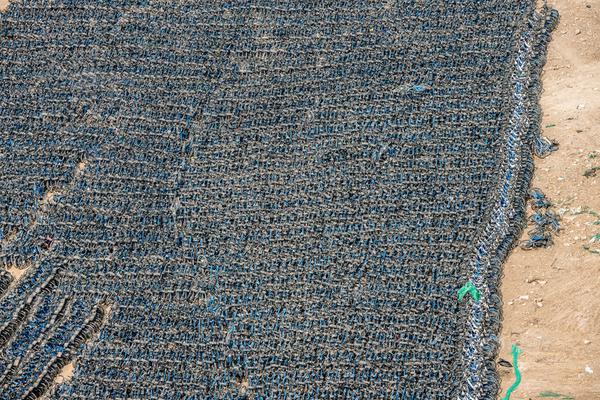
1. The five major functions of the operating system include: process and processor management, operation management, storage management, equipment management and file management.
2. A [Analysis] As the manager of the resources of the computer system, the main function of the operating system is to manage and schedule all the software and hardware resources of the system reasonably and improve the overall performance of the computer system.
3. Operating System (abbreviation: OS) is a group of interrelated system software programs that supervise and control computer operation, use and run hardware, software resources and provide public services to organize user interaction.
4. The main function of the operating system: process management. Resident programs and applications run on the basis of the process.When the computer adopts the von Neumann structure, each CPU can only run one process at a time.
5. The operating system has five functions: processor management: mainly controls and manages the work of the CPU. Storage management: mainly allocate and manage memory. Device management: mainly manage basic input and output devices. File management: responsible for the organization, storage, operation and protection of computer files.
6. The operating system has five functions: processor management: mainly controls and manages the work of the CPU. Storage management: mainly carry out memory allocation and management device management: mainly manage basic input and output device file management: responsible for the organization, storage, operation and protection of computer files, etc.

1. The storage management function of the operating system is to manage memory resources. It mainly realizes memory allocation and recovery, storage protection and memory expansion. The device management of the device management operating system is responsible for allocating and recycling external devices, and controlling external devices to operate according to the requirements of user programs.
2. The functions of the computer operating system include: processor management, memory management, device management, file management, job management and other functional modules. Processor management. The most basic function of processor management is to handle interrupt events. The processor can only detect interrupt events and generate interrupts and cannot process them.
3. The five major functions of the operating system are processor management, memory management, device management, file management and job management. Processor management The most basic function of processor management is to process interrupt events. After configuring the operating system, various events can be processed.
1. The main functions of the computer operating systemIt is process management. Its work is mainly process scheduling. In the case of a single user and a single task, the processor is only exclusive to one user's task. The work of process management is very simple.
2. The five major functions of the operating system are processor management, memory management, device management, file management and job management. Processor management The most basic function of processor management is to process interrupt events. After configuring the operating system, various events can be processed.
3. The role and basic functions of the operating system: the basic functions of the operating system include task management, interface management, human-computer interaction, graphical interface, voice control and virtual reality, etc.; file management; storage management, which is essentially the management of storage "space", mainly refers to the management of the main memory. Reason.
4. The basic functions of the operating system include process management, memory management, file system, network communication, security mechanism, user interface and driver. The operating system is the interface between the user and the computer, and also the interface between computer hardware and other software.
5. The five functions of the operating system are processor management, memory management, device management, file management and job management. Processor management The most basic function of processor management is to handle interrupt events. After configuring the operating system, various events can be processed.
6. The operating system has five functions: processor management: mainly controls and manages the work of the CPU. Storage management: mainly allocate and manage memory. Device management: mainly manage basic input and output devices. File management: responsible for the organization, storage, operation and protection of computer files.
Binance app-APP, download it now, new users will receive a novice gift pack.
1. The five major functions of the operating system include: process and processor management, operation management, storage management, equipment management and file management.
2. A [Analysis] As the manager of the resources of the computer system, the main function of the operating system is to manage and schedule all the software and hardware resources of the system reasonably and improve the overall performance of the computer system.
3. Operating System (abbreviation: OS) is a group of interrelated system software programs that supervise and control computer operation, use and run hardware, software resources and provide public services to organize user interaction.
4. The main function of the operating system: process management. Resident programs and applications run on the basis of the process.When the computer adopts the von Neumann structure, each CPU can only run one process at a time.
5. The operating system has five functions: processor management: mainly controls and manages the work of the CPU. Storage management: mainly allocate and manage memory. Device management: mainly manage basic input and output devices. File management: responsible for the organization, storage, operation and protection of computer files.
6. The operating system has five functions: processor management: mainly controls and manages the work of the CPU. Storage management: mainly carry out memory allocation and management device management: mainly manage basic input and output device file management: responsible for the organization, storage, operation and protection of computer files, etc.

1. The storage management function of the operating system is to manage memory resources. It mainly realizes memory allocation and recovery, storage protection and memory expansion. The device management of the device management operating system is responsible for allocating and recycling external devices, and controlling external devices to operate according to the requirements of user programs.
2. The functions of the computer operating system include: processor management, memory management, device management, file management, job management and other functional modules. Processor management. The most basic function of processor management is to handle interrupt events. The processor can only detect interrupt events and generate interrupts and cannot process them.
3. The five major functions of the operating system are processor management, memory management, device management, file management and job management. Processor management The most basic function of processor management is to process interrupt events. After configuring the operating system, various events can be processed.
1. The main functions of the computer operating systemIt is process management. Its work is mainly process scheduling. In the case of a single user and a single task, the processor is only exclusive to one user's task. The work of process management is very simple.
2. The five major functions of the operating system are processor management, memory management, device management, file management and job management. Processor management The most basic function of processor management is to process interrupt events. After configuring the operating system, various events can be processed.
3. The role and basic functions of the operating system: the basic functions of the operating system include task management, interface management, human-computer interaction, graphical interface, voice control and virtual reality, etc.; file management; storage management, which is essentially the management of storage "space", mainly refers to the management of the main memory. Reason.
4. The basic functions of the operating system include process management, memory management, file system, network communication, security mechanism, user interface and driver. The operating system is the interface between the user and the computer, and also the interface between computer hardware and other software.
5. The five functions of the operating system are processor management, memory management, device management, file management and job management. Processor management The most basic function of processor management is to handle interrupt events. After configuring the operating system, various events can be processed.
6. The operating system has five functions: processor management: mainly controls and manages the work of the CPU. Storage management: mainly allocate and manage memory. Device management: mainly manage basic input and output devices. File management: responsible for the organization, storage, operation and protection of computer files.
OKX Wallet apk download latest version
author: 2025-01-10 13:15 OKX Wallet apk download latest version
OKX Wallet apk download latest version
736.26MB
Check Binance US
Binance US
836.93MB
Check OKX Wallet extension
OKX Wallet extension
736.86MB
Check Binance login
Binance login
383.21MB
Check Binance Download for PC
Binance Download for PC
756.73MB
Check okx.com login
okx.com login
825.78MB
Check Binance download APK
Binance download APK
436.69MB
Check Binance app download Play Store
Binance app download Play Store
218.95MB
Check Binance US
Binance US
356.35MB
Check Binance app
Binance app
164.98MB
Check Binance Download for PC
Binance Download for PC
448.63MB
Check OKX app
OKX app
124.18MB
Check Binance exchange
Binance exchange
994.58MB
Check OKX Wallet download
OKX Wallet download
857.39MB
Check Binance US
Binance US
183.83MB
Check Binance download
Binance download
322.97MB
Check Binance Download for PC
Binance Download for PC
325.32MB
Check OKX Wallet apk download
OKX Wallet apk download
615.85MB
Check Binance US
Binance US
229.12MB
Check Binance app
Binance app
999.29MB
Check Binance Download for PC Windows 10
Binance Download for PC Windows 10
443.94MB
Check OKX Wallet download
OKX Wallet download
451.98MB
Check Binance login
Binance login
424.23MB
Check Binance download iOS
Binance download iOS
676.34MB
Check Binance wikipedia
Binance wikipedia
993.32MB
Check Binance wikipedia
Binance wikipedia
439.46MB
Check OKX Wallet Sign up
OKX Wallet Sign up
254.19MB
Check Binance exchange
Binance exchange
871.16MB
Check Binance US
Binance US
274.98MB
Check OKX Wallet app
OKX Wallet app
575.42MB
Check Binance Download for PC
Binance Download for PC
145.83MB
Check Binance US
Binance US
442.82MB
Check Binance download
Binance download
196.55MB
Check Binance download Android
Binance download Android
438.26MB
Check Binance app
Binance app
838.98MB
Check Binance login
Binance login
825.45MB
Check
Scan to install
Binance app to discover more
Netizen comments More
2660 长驱直入网
2025-01-10 13:57 recommend
2376 一鳞半甲网
2025-01-10 13:53 recommend
2602 隔世之感网
2025-01-10 13:41 recommend
2974 一己之私网
2025-01-10 13:12 recommend
2486 说三道四网
2025-01-10 12:00 recommend